Dermatovenereology

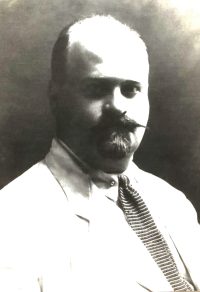
Kuban State Medical University traces its continuous history to the Faculty of Medicine of Kuban State University, established in the summer of 1920.At the same time, the Department of Skin and Venereal Diseases began its work.The first head was Dr. M.K.Egiazarov, N.G. was appointed first assistant of the department.Zakrepov.To accommodate the department, a ward room was allocated to the third city hospital (now Regional Clinical Hospital No. 1).In 1923, the first dermatovenerological dispensary in Kuban was opened in Krasnodar.From that time on, a strong and fruitful cooperation between the department and the dispensary began, which continues to this day.In January 1925, the Academic Council elected Professor V.A. to the position of head of the department.Pospelov, invited to Krasnodar, along with other prominent scientists of that time, to strengthen the scientific and pedagogical staff of the university.In 1925, under his leadership, a student scientific circle began to work at the department.In the same year, the training of residents in the specialty of dermatovenerology began, and in 1927 the first graduation of dermatovenerologists took place.On the initiative of the professor, the Department of Skin and Venereal Diseases organized the Regional Scientific Society of Dermatovenerologists.Together with the society, the department published two collections consisting of 116 research works entitled “Scientific notes on dermatology and venereology of doctors of Kuban”, 6 monographs and 4 methodological letters.Society members were actively working to reduce the incidence of sexually transmitted and contagious skin diseases, introducing new methods for diagnosing and treating a number of diseases.The continuous treatment and preventive work of the department and dispensary staff made it possible to reduce the incidence of syphilis in Krasnodar by 15 times in the period from 1925 to 1939.
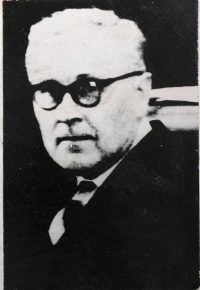
During the Great Patriotic War, the department and the institute survived two evacuations - to Yerevan and Tyumen.In November 1943, the staff of the department returned to Krasnodar, during this period the duties of the head of the department were performed by Associate Professor M.A.Elfond.
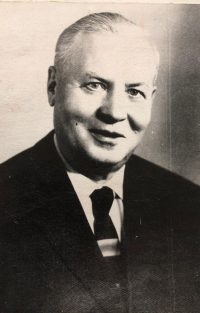
In 1944, the Academic Council of the Kuban Medical Institute elected Professor I.I. to the position of head of the department.Pototsky.In the period from 1944 to 1958, the scientific activity of the department was devoted to the pathogenesis and therapy of leprosy.Under the leadership of Ivan Ivanovich, 3 candidate's dissertations on the problem of treating leprosy were completed, 3 monographs and 25 journal articles were written.I.I.Pototsky also published 152 scientific papers on the etiology, pathogenesis, clinical picture and treatment of psoriasis, eczema, pyodermatitis, collagenosis, occupational dermatoses, and syphilis.The professor paid a lot of attention to the problems of treatment and rehabilitation of patients with chronic skin diseases; he established close cooperation and continuity of patient care between the dispensary and dermatological sanatoriums in the city of Sochi.
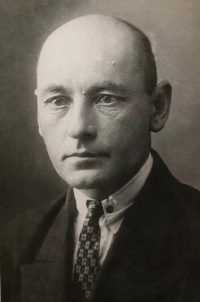
In 1959, L.A. became the head of the department.Neradov, who defended his doctoral dissertation on photodermatoses.It is the problem of pathogenesis, differential diagnosis and treatment of photodermatoses that has become the key topic of research of the department for the next four years, and the classification of solar dermatoses developed by the professor is still relevant today.
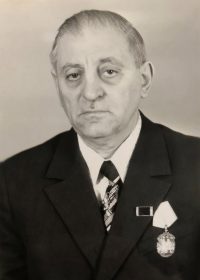
From 1963 to 1990, the department was headed by the famous clinician and researcher Professor M.A.Karagyozyan.During this period, allergic skin diseases became the subject of study of the department.The role of allergic reactivity in patients with fungal diseases, occupational allergic dermatoses, true eczema, and atopic dermatitis is being actively studied.Under the leadership of Misak Ambartsumovich, 3 doctoral and 14 candidate dissertations were completed and successfully defended at the department, 27 new diagnostic and treatment methods were developed and introduced.The professor published about 200 scientific papers, including 2 monographs, made 4 inventions and 9 innovation proposals.Under his leadership, at different times, assistants worked, and then professors: A.M.Katkhanov, V.P.Sivak, N.F.Tseraidi, associate professors – T.N.Zlochevskaya, V.S.Melnikova.
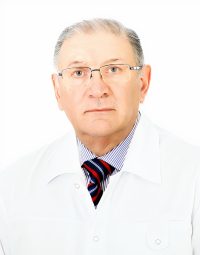
From 1990 to 2010, the department was headed by Professor, Doctor of Medical Sciences, Honored Doctor of the Russian Federation - Ali Muratovich Katkhanov.In 1992–2005, he was simultaneously the director of the Krasnodar regional clinical dermatovenerological dispensary, which combined the theoretical developments of the department and the potential of the regional dermatovenerological dispensary.Ali Muratovich is the author of 2 invention patents, 4 copyright certificates, and more than 300 scientific papers.Under his leadership, a new galaxy of his students grew up: M.M.Tlish, N.A.Boyko, F.Sh.Gamzaev, A.V Petrosyan, O.A.Katkhanov, and 9 candidate dissertations were defended.The leading directions in the research work of the department during this period were the immunological aspects of chronic dermatoses, syphilidology, and sexually transmitted diseases.
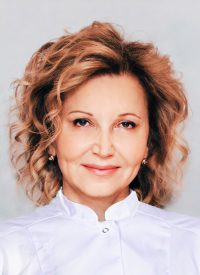
Since 2010, the department has been headed by Marina Mossovna Tlish - professor of the department, Doctor of Medical Sciences, professor, expert on the quality of medical care in the Krasnodar Territory in the specialty "Dermatovenereology", deputy chairman of the regional society of dermatovenereologists and the expert group for the certification of dermatovenereologists of the regional certification commission.Marina Mossovna is the author of more than 160 scientific publications, 8 patents for inventions, 47 teaching aids.Under the leadership of M.M.Tlish successfully defended 5 dissertations for the degree of Candidate of Medical Sciences.
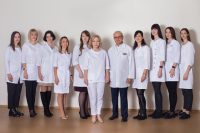
The scientific activity of the department at the present stage is devoted to the optimization of complex diagnostics and treatment of patients with chronic dermatoses, including autoimmune origin, as well as the study and improvement of algorithms for the management of dermatological patients with comorbid pathology.Since 2021, as part of the implementation of the strategic academic leadership program “Priority 2030”, the department has been introducing digital technologies into scientific, educational and medical processes, strengthening interdisciplinary interactions, reorienting the existing traditional medical education system in order to train specialists of a new generation, and introducing lean technologies.The department trains undergraduates, residents and graduate students.Cycles of advanced training for doctors and cycles of professional retraining in the specialties “Dermatovenereology” and “Cosmetology” are regularly conducted.The department holds monthly meetings of the student scientific circle.Regional scientific and practical conferences are organized twice a year within the framework of the system of continuous medical education.Scientific and practical conferences on current issues of dermatovenerology, cosmetology and related disciplines are held quarterly.The employees of the department carry out extensive medical and advisory work, providing highly qualified assistance to patients from cities and regions of the Krasnodar Territory.Currently, the following employees work at the department: head of the department, doctor of medical sciences.MM.Tlish, associate professors Ph.D.M.I.Gluzmin, Ph.D.T.G.Kuznetsova, Ph.D.Zh.Yu.Naatyzh;assistants candidate of medical sciences M.I.Kartashevskaya, Ph.D.F.A. Psavok, Ph.D.Sashko M.E., Ph.D.N.V.Sorokina, Ph.D.N.L.Sycheva, Ph.D.M.E.Shavilova, L.G.Demirchyan, P.S.Osmolovskaya Applying the colossal experience accumulated by previous generations, the staff of the Department of Dermatovenereology of the Kuban State Medical University is developing new areas of teaching and research activities and, preserving the traditions of its teachers, the department continues to make a significant contribution to the work of the dermatovenereology service of the region.

